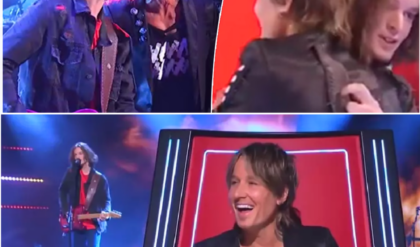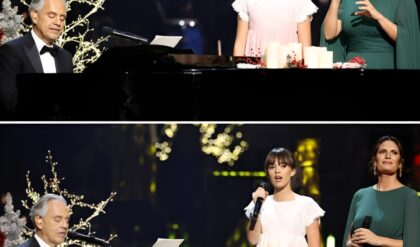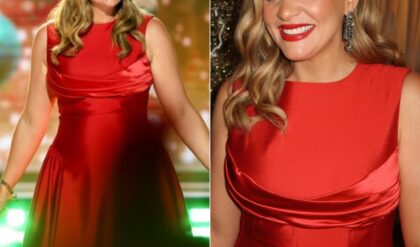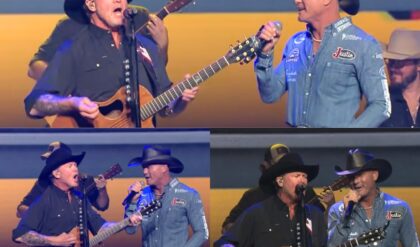In the glittering yet unforgiving world of Hollywood, few stars have risen as swiftly—and fallen into controversy as dramatically—as Rachel Zegler. The 23-year-old actress, once hailed as the next big thing after her breakout role in Steven Spielberg’s 2021 remake of West Side Story, has become a lightning rod for debates on representation, politics, and celebrity hubris. But what if the real “secret” from her past isn’t a hidden scandal but a series of public statements and behaviors that have been amplified by critics, fans, and media alike? Dug up from interviews, social media posts, and behind-the-scenes whispers, these revelations paint a picture of a young talent navigating fame with unfiltered opinions that have sparked backlash, boycotts, and even career setbacks. This article delves into the controversies surrounding Zegler, examining the so-called “exposed secrets” from her past, the context behind them, and the broader implications for Hollywood’s culture wars.
Zegler’s journey began humbly enough. Born on May 3, 2001, in Hackensack, New Jersey, to a Colombian mother and a father of Polish descent, she grew up in a multicultural household that shaped her identity as a Latina actress. From a young age, she showed promise in musical theater, performing in school productions and uploading videos of her singing to YouTube. Her big break came in 2018 when, at just 16, she responded to an open casting call for Spielberg’s West Side Story. Beating out over 30,000 applicants, Zegler landed the role of Maria, a Puerto Rican immigrant in the classic tale of forbidden love. The film, released in December 2021, earned critical acclaim, with Zegler winning a Golden Globe for Best Actress in a Motion Picture – Comedy or Musical. Critics praised her vocal prowess and screen presence, drawing comparisons to legendary performers like Julie Andrews.
Yet, even in this triumphant debut, seeds of controversy were sown—seeds that would later be labeled as alleged hypocrisy. While Zegler championed the film’s focus on authentic representation, emphasizing how it “properly represented the people that the story is about,” some in the Puerto Rican community questioned her casting. As a Colombian-American who doesn’t speak Spanish fluently and lacks direct ties to Puerto Rican culture, Zegler faced criticism for not being “Puerto Rican enough.” Detractors pointed out that while she identified as a “white Latina” with privilege in a 2020 tweet, her role displaced potentially more culturally aligned actresses. One analysis claimed this was a “successful grift,” where Zegler used representation rhetoric to advance her career while ignoring community complaints. This past event resurfaced amid later scandals, fueling accusations that Zegler’s advocacy was selective and self-serving.
The real storm brewed with her casting as Snow White in Disney’s live-action remake, announced in June 2021. Set for release on March 21, 2025, the film positioned Zegler as the iconic princess, but her Latina heritage immediately ignited racist backlash. Trolls flooded social media, arguing that a character described as having “skin as white as snow” couldn’t be played by someone of color. Zegler addressed this directly, tweeting that “Disney adults” shouldn’t have issues with a Latina portraying the princess, explaining the name’s origin as symbolic of resilience during a snowstorm rather than literal skin tone. Supporters framed this as outright racism, comparing it to the harassment faced by Halle Bailey in The Little Mermaid. “It can all be summed up by one horrible, ugly word: racism,” one article asserted, noting that Zegler’s talents were overshadowed by her ethnicity.
But the “exposed secret” that truly escalated the drama was Zegler’s past comments on the 1937 animated Snow White. In 2022 interviews, she described the original as “extremely dated when it comes to the ideas of women being in roles of power,” criticizing the prince as a “stalker” who kisses what he assumes is a dead body. She emphasized that her version would focus on Snow White becoming a “fearless leader” rather than dreaming of true love, quipping, “We didn’t do that this time.” These remarks, resurfaced in 2023, were branded as ungrateful and hypocritical by critics. One video called her a “human version of a rolling eye emoji,” accusing her of arrogance for mocking a beloved classic while benefiting from Disney’s IP. The son of the original film’s director reportedly said his father and Walt Disney “would be turning in their graves.”
Compounding this was Zegler’s political outspokenness, another “secret” from her past social media activity that was weaponized against her. In August 2024, amid the Snow White trailer release, she posted “Free Palestine” on social media, sparking friction with co-star Gal Gadot, an Israeli actress with a history in the IDF who has publicly supported Israel. Insiders claimed this led to behind-the-scenes tensions, with producer Marc Platt urging Zegler to remove the post—a request she refused. Gadot reportedly received death threats, prompting Disney to fund extra security for her family, while Zegler’s stance was seen as alienating half the audience. After Donald Trump’s 2024 re-election, Zegler tweeted, “May Trump supporters and Trump voters and Trump himself never know peace,” later apologizing but drawing further ire. This was labeled the “breaking point” for Disney, who assigned her a social media strategist.
Critics amplified these as evidence of “dirty behavior,” portraying Zegler as narcissistic and self-sabotaging. One video claimed she sabotaged co-star Andrew Burnap by suggesting his scenes as the prince could be cut—”All of Andrew’s scenes could get cut. Who knows? It’s Hollywood, baby”—and noted he skipped the premiere. Another highlighted her Broadway debut in Evita at London’s Palladium in 2025, where over 70% of seats were empty, tickets slashed to $29.50, and she performed a key number on a balcony for free passersby while paying audiences watched on screens—a move dubbed a “bait-and-switch grift.” These events were tied to her past “ego,” with claims she doubled down without apology, blaming the public instead.
From another perspective, this scrutiny is a Hollywood travesty rooted in misogyny, racism, and culture wars. Some argued that Zegler’s “innocuous” comments on gender politics were unfairly demonized, unlike similar remarks by white actresses like Lily James about Cinderella. Her political views, while precarious in an industry wary of alienating audiences, reflect a generational shift toward activism. Zegler herself revealed the toll: harassment at her apartment, where people screamed profanities over her skin color, leading her to seek therapy and anxiety medication. In a 2024 interview, she said, “There was a lot of harassment from a certain group of people—they were showing up at my apartment and screaming profanities.”
The impact on her career has been stark. Snow White, with a $270 million budget, opened to just $43 million domestically, far below expectations, amid boycotts and “anti-woke” backlash. Merchandise languished on shelves, and Disney scaled back promotions, keeping Zegler and Gadot apart at events to avoid feud perceptions. Projects like a rumored Tangled reboot were canceled, with insiders citing her as a PR risk. Yet, Zegler persists, promoting Evita and reflecting on her growth. In an Instagram post, she called Snow White a “life-changing experience” where she “became a real adult.”
So, is this “exposed secret” a genuine revelation of flawed behavior, or a manufactured narrative in the era of cancel culture? On one hand, Zegler’s unfiltered past comments and actions have undeniably contributed to her professional hurdles, substantiating claims of hypocrisy and arrogance from detractors. On the other, the disproportionate backlash—fueled by racism and political bias—highlights Hollywood’s double standards for women of color who speak out. As Zegler navigates this, her story serves as a cautionary tale: in Tinseltown, the past is never truly buried; it’s just waiting to be “exposed” for clicks and controversy.





